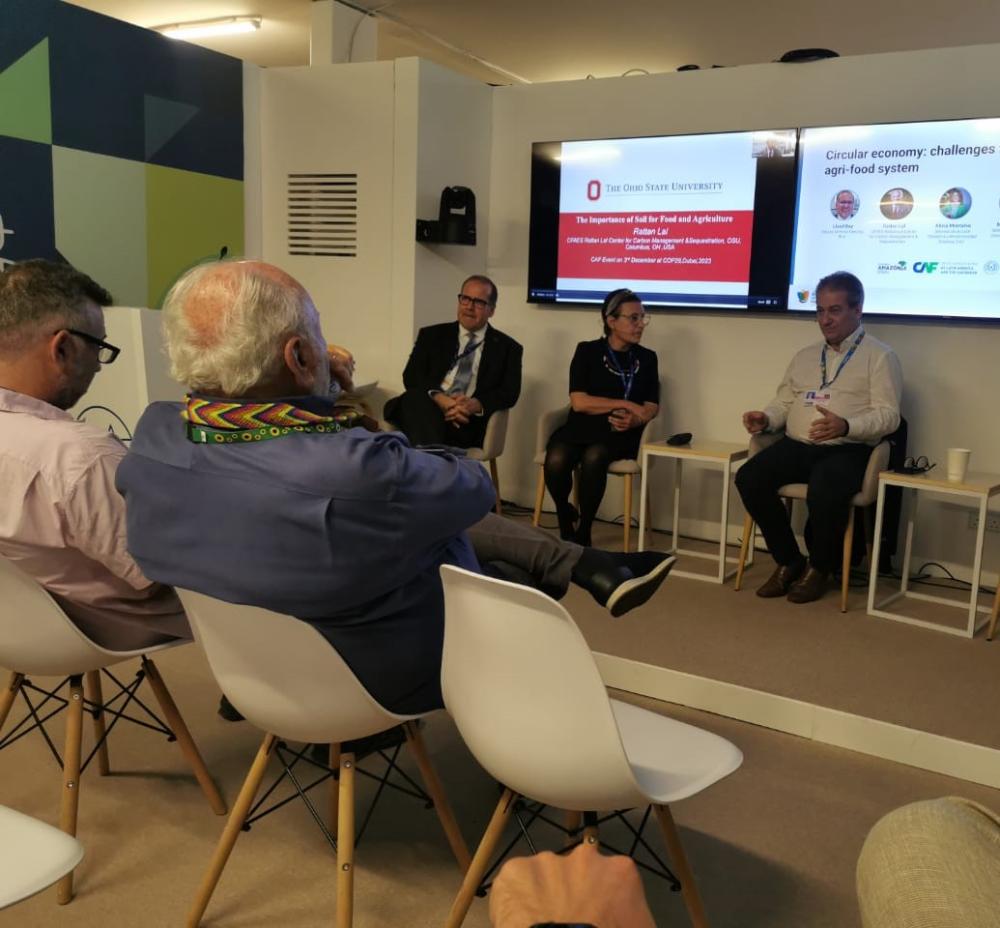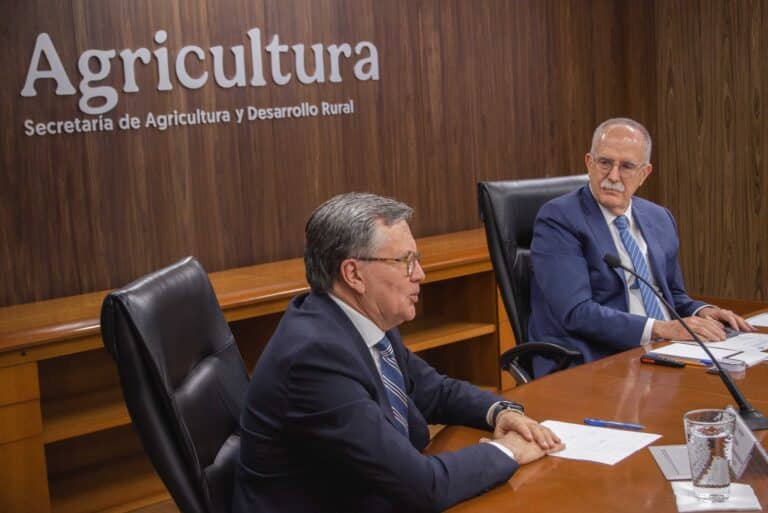During the activity, the countries of the region were invited to play an active part in the process leading up to the first COP to be held in Amazonia, whose goal must be to trigger a global change in environmental agendas.

Dubai, United Arab Emirates, December 8, 2023 (IICA). COP30, which the Brazilian city of Belém will host in 2025, must be Latin America’s COP, as it will open up enormous opportunities for structural transformation for a region that is eagerly seeking the path to sustainable development.
This point was emphasized by Marcello Brito, food engineer and executive director of the Amazonia Legal Consortium, comprised of the nine Brazilian Amazon states and whose mission is to speed up sustainable development in the region by means of integrated, cooperative efforts. He then called on all the Latin American and Caribbean countries to collaborate in the event, which, provided that Brazil and its neighbors act with strategic and political intelligence, should result in the endorsement of a new economic, financial and climate agenda: the nature agenda.
Brito spoke about these challenges in the pavilion of the Inter-American Institute for Cooperation on Agriculture (IICA) at COP28, the House of Sustainable Agriculture of the Americas, where he took part in an event on the bioeconomy and the circular economy. He invited the countries of the region to play an active part in the process leading up to the first COP to be held in the Amazon, whose goal must be to trigger a global change in environmental agendas.
“COP30 will create opportunities for Brazil and Amazonia, but also responsibilities. The responsibilities include one that is Brazil’s alone and to which we have to respond quickly and effectively: that of halting deforestation. The first responsibility is to ensure that our laws are implemented. What does that mean? There can be no more illegal deforestation in Amazonia. We must put an end to the illegal process seen in recent years. We must stop it. There are already enough degraded areas for us to transform for agriculture, the bioeconomy, integrated agroforestry systems, and other activities. That is Brazil’s responsibility,” he stressed.
Turning to the process that the Amazonian COP should trigger, he said that “we have a number of opportunities. The first concerns the city of Belém itself, which will have an urban legacy, thanks to all the investments that will be made to host guests from around the world. But, more importantly, this is not ‘the Belém COP.’ It is the ‘Amazonian COP.’ And when we talk about Amazonia, we mean all the countries in Amazonia. So if we have the strategic and political intelligence over the next two years to advance an agenda that I call the ‘nature agenda,’ that will be the economic, financial, and climate agenda for 10 years after COP30.”
Brito explained that “according to UN regulations, in 2025 all the countries will have to present their new NDCs. (NOTE: Nationally Determined Contributions, or NDCs, are the commitments assumed by the countries party to the United Nations Framework Convention on Climate Change (UNFCCC) and which they must fulfil to step up their actions to combat climate change, either by reducing greenhouse gas emissions -GHG- (mitigation actions), or adapting to the impacts that they produce (adaptation actions). Each country’s contributions are established according to their national circumstances and their respective capabilities. The set of NDCs presented by each country should help to meet the Paris Agreement objectives of “holding the increase in the global average temperature to well below 2 °C above pre-industrial levels and pursuing efforts to limit the temperature increase to 1.5 °C above pre-industrial levels”). And wouldn’t it be great if those NDCs were based on nature markets? In other words, on socio-biodiversity markets. That would be a complete structural transformation of Latin America.”
To support his argument, the representative of the Brazilian organization that represents the states of Acre, Amapá, Amazonas, Mato Grosso, Maranhão, Pará, Rondônia, Roraima and Tocantins pointed out that “at COP28 in Dubai, when you visit the pavilions, you find people talking about Amazonia. Probably people who have never set foot in Amazonia. But I’d say you shouldn’t talk about Amazonia unless Amazonians are present. If we’re going to talk about the Bolivian Amazon, there should be Bolivians present, if about the Colombian Amazon, there should be Colombians present. And if about the Brazilian Amazon, there should be Brazilian Amazonians present. More than 160 heads of state will be in Belém in 2025, and where heads of state go, the economic sector follows. “This means that for the first time in history the world’s political and economic leaders will see Latin America’s Amazon for themselves.”
For this reason, he added, the opportunities that are opening up for the Latin American region are those of the “bioeconomy markets, bioeconomy products, rainforest products, wood products. When we talk about restoring forests, we’re talking about the chemical industry, the pharmaceutical industry, through bioeconomy assets. All of Latin America is rich in minerals, they say… but that presents us with a sustainability problem. Yes. But it’s not about blocking mining, it’s about the type of mining we should engage in. There is no way of making the climate-energy transition without mining. That’s another opportunity that is opening up, for batteries, etc. And finally, the production of hydrogen is a huge opportunity for the countries, through a clean energy matrix, which is a characteristic of the Amazonian and South American countries. There are a number of opportunities and I could mention several others. What we need is pre-competitive collaboration among the countries of the region to make this happen.”
With regard to the question of the role of international technical cooperation, and IICA’s cooperation specifically, Brito concluded his remarks by saying that “if we add up the agricultural production of all the countries covered by IICA, we’ll find that it includes a very large percentage of the world’s food and, therefore, is a very big responsibility. Not only for our peoples, but also because of the volume of our exports. IICA is a transformer of that process. Here we’re talking a lot about regenerative, circular agriculture, but someone has to help producers implement it, and it is IICA that does it.”
On repeated occasions, including during a visit to Brasilia at the beginning of this year, the Director General of IICA, Manuel Otero, underlined the hemispheric organization’s full support for the candidacy of the Brazilian Amazonian city of Belém as the venue for COP30 before the UN confirmed that it would take place in Brazil.
More information:
Institutional Communication Division.
comunicacion.institucional@iica.int











